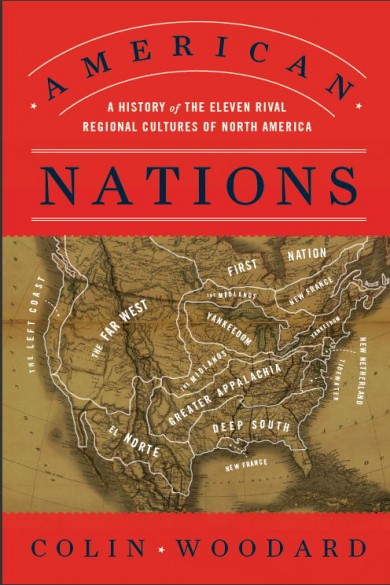
If you have not been following Hunter Wallace’s reviews of Colin Woodard’s book Americans Nations on Occident Dissent, you really should make the effort to read through them. Woodard makes the case that, rather than a homogeneous group of Europeans, America was settled by a number of culturally and ethnically distinct nations with often very different and clashing interests and political ideals. I think that Woodard’s view is the correct one, and that this view does a much better job of explaining American history than other views do. Much of American political history can be viewed as a struggle of power and shifting of alliances amongst these different nations. Woodard’s book highlights the need to break the United States up into at least two, and probably more like four or more, separate countries. The political philosophies of the American nations are simply too different to be able to make sharing the same government anything other than a constant war for power – a war that devolved into actual shooting in the 1860s.
All that being said, I do think that in examining the differences amongst the different European-American nations, we should not lose sight of our similarities. To a larger or smaller degree depending on the nations, we have a shared language, shared religion, and shared history. I have a lot more in common with a white man from Wyoming or New Hampshire than I do with a Kenyan or Japanese. I think a good way to look at it is to view European-Americans as something akin to an ethnic group and the individual nations as subgroups within it. This affirms our commonalities while still acknowledging the need for separate countries to accommodate our different cultures and interests. The Dutch and Germans are both Germanic, but they should have separate countries; the Scots and Irish are both Celtic, but they should have separate countries; and Southerners and Yankees are both European-Americans, but they should have separate countries.
| Tweet |
|
|
|




